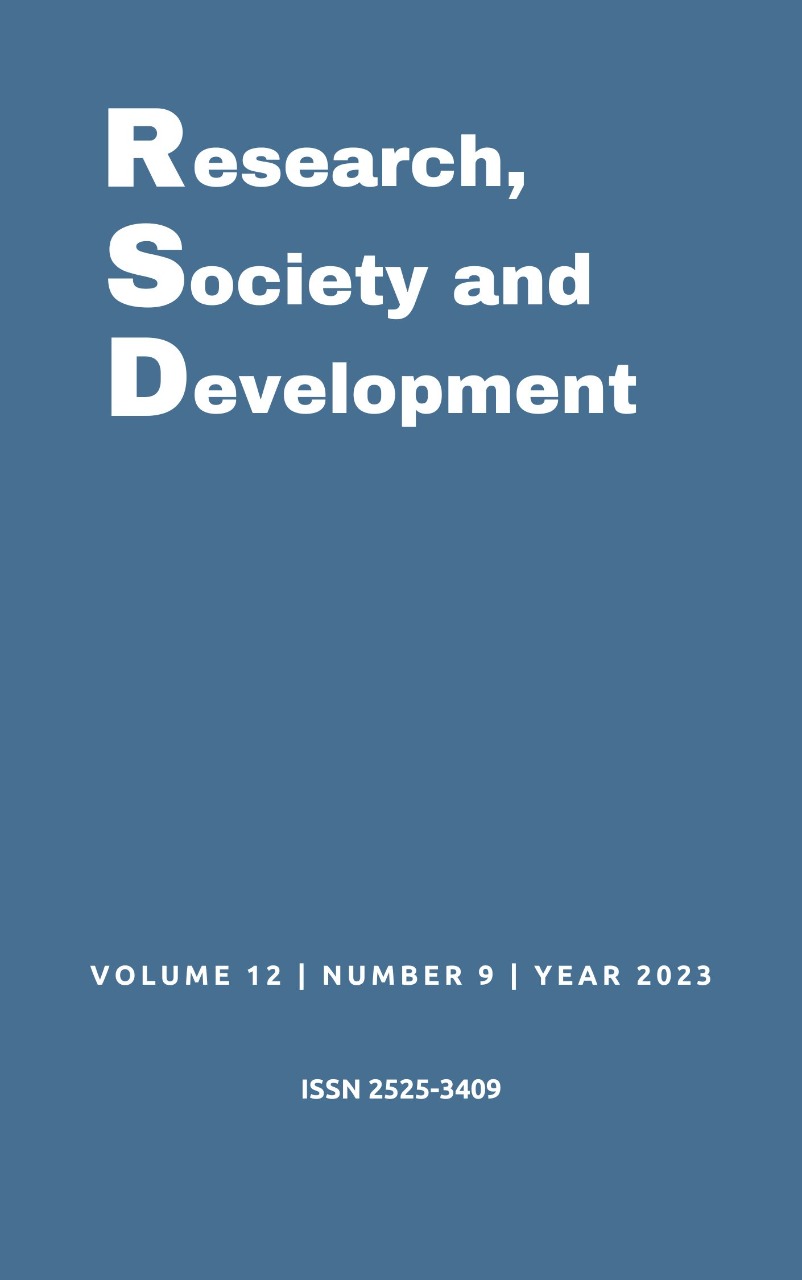Identification of potential risks of adverse reactions from lithium carbonate
DOI:
https://doi.org/10.33448/rsd-v12i9.43311Keywords:
Lithium; Adverse effects; Toxicity; Intoxication; Psychiatry.Abstract
Introduction: lithium is the most efficient long-term therapy in the treatment and prevention of bipolar disorders as a mood stabilizer, and when in use, it is necessary to have constant monitoring of the plasma concentration to avoid cases of intoxication, as it is a substance of low therapeutic index. Objective: to identify the potential risks of organic and systematic adverse reactions to lithium carbonate, as well as drug interactions that can contribute to serious complications for the patient. Methodology: this is a descriptive research of the Integrative Literature Review type. Studies published in the period between 2015 and 2021 were considered, and relevant sources inherent to the theme were analyzed, using as one of the main criteria the choice of current, original and international articles. Results: even when used in therapeutic doses, lithium can cause important changes, such as a decrease in GFR, which in a feedback way lead to acute lithium intoxication, causing cardiac, renal and mental state alterations. Factors such as age and time of drug use must be considered in a directly proportional way to assess the extent of injuries and changes suffered by the patient. Conclusion: despite all adverse effects resulting from the use of lithium, this treatment remains the gold standard in the treatment of bipolar disorder. Therefore, it is important to monitor patients' blood glucose and the functions of multiple systems in order to regulate doses or even associate lithium with other medications in order to reduce adverse effects, if necessary.
References
Aral, H., et al. (2008). Toxicity of lithium to humans and the evironment: a literature review. Ecotoxicology and Environmental Safety. 70 (3), 349-356.
Beaulieu, J. M., et al. (2008). Olhando para o lítio: humores moleculares e comportamento complexo. Molecular Interventions. 8 (5), 230-241.
Cordioli, A. V. (2014). Psicofármacos nos transtornos mentais. Reserch Gate. 1-55.
Demling, J. H., et al. (2001). On the physiological function of lithium from a psychiatric viewpoint. Medical Hypotheses. 57 (4), 506-509.
Ferreira, C. A. A., et al. (2017). Identificação dos potenciais riscos de reações adversas ao carbonato de lítio em um hospital público de Minas Gerais. Revista de Saúde Pública do SUS/MG. 2 (1), 43-51.
Figueiredo, C.; & Lemos, J. (2020). Lithium, an old friend and a forgotten enemy. Revista da Associação Médica Brasileira. 66 (12), 1625-1627.
Fontalvo, J. E. R. (2018). Intoxicación por litio, una verdadera urgencia dialítica. Revista Colombiana de Nefrología. 5 (2), 104-106.
García-Maldonado, G.; & Castro-García, R J. (2019). Alteraciones endocrinas vinculadas a la prescripción médica de carbonato de lítio- Una revisión narrativa. Revista Colombiana de Psiquiatría. 48 (1), 35-43.
Giraldo, J. A..; Berrouet, M. C.; & Cárdenas, J. F. (2016). Intoxicación por litio. Ces Med. 30 (1), 129-134.
Hamid, O. I. A. et al. (2020). The molecular mechanisms of lithium-induced cardiotoxicity in male rats and its amelioration byN-acetyl cysteine. Human & Experimental Toxicology. 39 (5), 696-711.
Lin, y. H. et al. (2020). Lithium toxicity with prolonged neurologic sequelae following sleeve gastrectomy. Medicine. 99 (28), 1-4.
Maddala, R. N. M. et al. (2017). Chronic lithium intoxication: Varying electrocardiogram manifestations. Indian Journal of Pharmacology. 49 (1), 127-129.
Mamdani, F. et al. (2004). Response to lithium treatment in bipolar disorder as a pharmacogenetic phenotype. Current Psychosis & Therapeutics Reports. 2 (1), 167-175.
Martínez, T. P. et al. (2017). Infección urinaria por Acinetobacter baumannii e intoxicación por lítio: a propósito de un caso. Psiquiatría Biológica. 24 (2), 78-80.
Mehta, N.; & Vannozzi, R. (2017). Lithium-induced electrocardiographic changes: a complete review. Clinical Cardiology. 40 (12), 1363-1367.
Meleiro, A. M. A. S. (2018). Manejo com segurança do lítio. Sociedad Iberoamericana de Información Científica.
Öhlund, L. et al. (2018). Reasons for lithium discontinuation in men and women with bipolar disorder: a retrospective cohort study. Bmc Psychiatry. 18 (1), 18-37.
Organização Mundial da Saúde (OMS). (2002). A importância da farmacovigilância: monitoramento para segurança de medicamentos. 1-48.
Tondo, L. et al. (2017). Long-term lithium treatment in bipolar disorder: effects on glomerular filtration rate and other metabolic parameters. International Journal of Bipolar Disorders. 5 (1), 1-12.
Tondo, L. et al. (2019). Clinical use of lithium salts: guide for users and prescribers. International Journal Of Bipolar Disorders. 7 (1), 7-16.
Zung, S. (2010). O uso do lítio no transtorno afetivo bipolar. Arquivos Médicos dos Hospitais e da Faculdade de Ciências Médicas da Santa Casa de São Paulo. 55 (1), 30-37.
Downloads
Published
How to Cite
Issue
Section
License
Copyright (c) 2023 Bruna Damas de Carvalho; Thiago Sales Zanol; Ana Laura Rezende Meireles; Raíssa Arruda Matta; Leticia Maria Ribeiro Santos; Gabrielly Thiemmy Sassaki; Elias Inácio Mendonça Machado; Izabel Rezende Ferreira Jácomo de Oliveira; Gabriela Falone Silva; Miguel de Faria Teodoro

This work is licensed under a Creative Commons Attribution 4.0 International License.
Authors who publish with this journal agree to the following terms:
1) Authors retain copyright and grant the journal right of first publication with the work simultaneously licensed under a Creative Commons Attribution License that allows others to share the work with an acknowledgement of the work's authorship and initial publication in this journal.
2) Authors are able to enter into separate, additional contractual arrangements for the non-exclusive distribution of the journal's published version of the work (e.g., post it to an institutional repository or publish it in a book), with an acknowledgement of its initial publication in this journal.
3) Authors are permitted and encouraged to post their work online (e.g., in institutional repositories or on their website) prior to and during the submission process, as it can lead to productive exchanges, as well as earlier and greater citation of published work.

